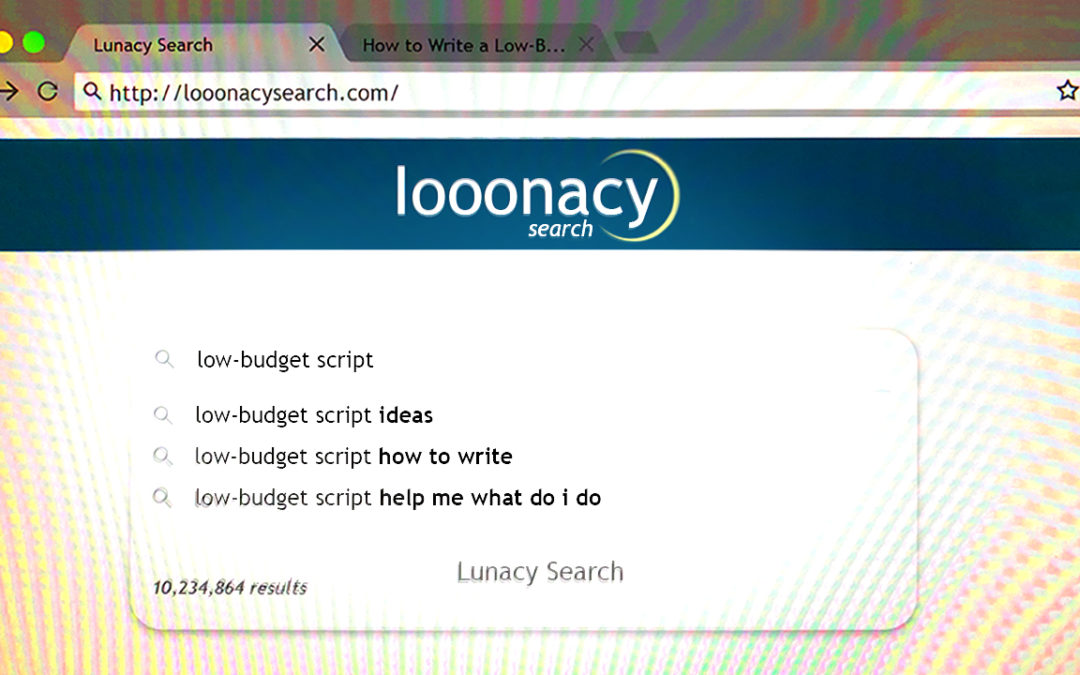Sometimes, even the strongest scripts have a hard time selling because of the production costs they would incur. If your ultimate goal is to see your work on the big screen, you need to be able to write good content that is affordable to make. Whether your dream is to partner with an indie company or work with a big studio, having a low-budget spec will show potential collaborators that you are capable of creating work that is both high-quality and producible.
You don’t have to be a line producer to know how to write for a budget — the Internet is littered with articles on cheap scripts. To get you started, here is a curated collection of reads to help you write a screenplay that is both good and affordable. You don’t have to sacrifice creative expression — in fact, consider this a creative challenge!
1. The golden rules
No weather. No stunts, no fights, no guns, no pyrotechnics. No fantasy sequences. No dragons.
The standard low-budget script advice is to use few locations, a small cast, and a low page count. This MetaFilter thread covers all that and more — it provides a comprehensive, no-nonsense list of everything you should keep in mind when money is tight, from music licensing to low-light shooting. If you only need a basic, quick guide to what makes a script cheap, look no further.
2. It’s a matter of time
[T]he underlying issue when it comes to a film’s budget is not how many locations you use or even how many actors you have, it’s about how many days you spend filming.
So you’ve tried cutting down actors and locations, but your script is still looking expensive. Clive Frayne’s ScriptMag article might be able to help. He correctly observes that most cost-saving measures are, in actuality, time-saving measures. It all comes down to the cost of shooting per day and the total number of days spent shooting. If you decrease the number of filming days, your location, cast, and crew costs will simultaneously go down as well. But how does a writer know what eats time on a film set? That’s just one of the questions Frayne addresses!
3. Reverse engineer
Locations, props, wardrobe– the goal is to pay for nothing. […] Take the resources you can bring and make an accounting.
Paul Peditto is a veteran screenwriter and low-budget specialist, and the co-author of The DIY Filmmaker. In this article, he draws inspiration from Roger Corman and Robert Rodriguez’s schools of filmmaking, and encourages writers to reverse engineer their scripts. Peditto recommends that you take stock of what you already have, and build your script based on that. Does your dad manage a bowling alley? Set your movie there. Do you have a friend who works at Goodwill? That takes care of wardrobe. Exploring your resources will encourage you to think outside the box, and mold your script in ways you otherwise would not have thought of.
4. Write your heart out
Writing and producing are different skillsets. [T]hey represent two distinct processes. Traditionally, a writer dreams. A producer makes that dream happen.
Not all of us are producer-minded, and while it’s ideal to write for a budget from the outset, some writers find it too restricting and get bogged down in the technical details. Lights Film School recognizes this, and offers an alternative for those who nurse big ideas. Write your heart out, get it all out on the page, then take some time away from the script. When it’s eventually time for your rewrite, you’ll have a fresh pair of eyes, and it will be easier to cut things down. Of course, this might not work in every scenario — it is unlikely that your sci-fi action movie will ever be made on an indie budget — but depending on your script, it might be the route for you.
5. Consult a professional
In this day and age, you can reach almost anyone online. Line producers aren’t high-profile, thus may be more approachable. […] The worst thing that can happen is they say no.
Still not sure if your script fits into your intended budget? Ken Miyamoto’s article in MovieMaker gives some helpful business tips on gauging your screenplay’s budget during the writing process. He recommends looking up the budget of comparable films, and if all else fails, consulting a line producer for advice. While this might be a bit of an investment, it could save you significant amounts in the long run. Miyamoto also stresses the importance of knowing the business end of your genre, that is, knowing which genres work well on the cheap, and which don’t.

